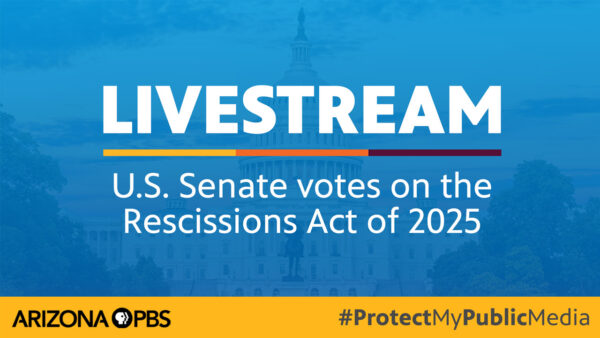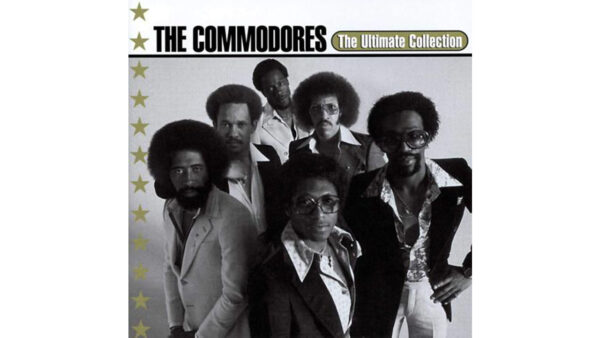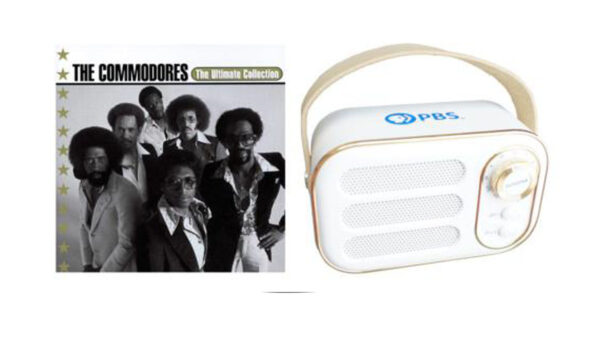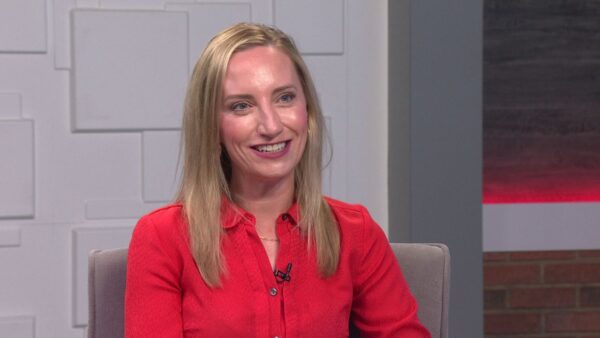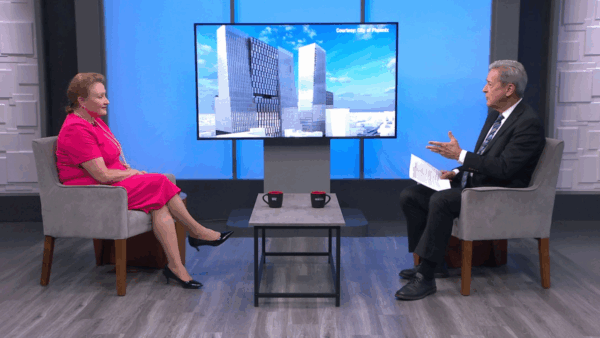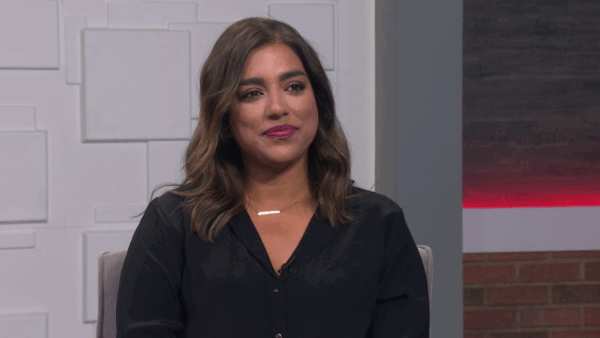A federal appeals court has put a temporary hold on requirements to show I.D. when voting and proof of citizenship when registering to vote. Arizona Attorney General Terry Goddard says he is going to appeal the case to the United States Supreme Court. Arizona State University professor Paul Bender will talk about the legal issues involved in the case.
Michael Grant:
Tonight on Horizon, a federal appeals court decision that put voter I.D. requirements on hold is going to be appealed to the United States Supreme Court. We'll discuss that case with an ASU law professor. Also, learn about "Remaking American Medicine," a new PBS series which examines critical health care issues facing Americans today. Plus, a sneak preview of the Arizona Opera Company's production of "Macbeth." that's next, on Horizon.
Announcer:
Horizon is made possible by contributions from the friends of Eight, members of your Arizona PBS Station. Thank you.
Michael Grant:
Good evening and welcome to Horizon. I'm Michael Grant. Before we get to our main topics, here's the latest news. State Representative Russell Pearce is facing heat from his own party for an e-mail he sent out that contained an article from a white separatist group's newspaper. Pearce has apologized for sending out the e-mail, which also contained a link to the white separatist group's web site. But Republican leaders are still upset. Congressman J.D. Hayworth, who along with Pearce has been very outspoken about immigration, says he no longer endorses Pearce. And State Republican Party Chair Matt Salmon called the e-mail a "severe mistake."
Michael Grant:
Arizona's State Attorney General says he's going to take a decision temporarily halting Arizona's voter I.D. law to the United States Supreme Court. Terry Goddard asked the ninth circuit court of appeals to reconsider its decision to halt proposition 200 at the next election. But the court refused. Goddard will ask the U.S. Supreme Court for an emergency appeal. Here to talk about the case is Arizona State University Law Professor Paul Bender. Who I haven't seen for quite some time, Paul. Good to see you.
Paul Bender:
Nice to see you.
Michael Grant:
I want to talk about the procedure a little bit here, because it's interesting. Ninth circuit I want to say ten days ago had issues the --
Paul Bender:
October 5 --
Michael Grant:
The stay --
Paul Bender:
October 5. It's really an injunction. They enjoined both -- proposition 200 has two parts that affect voting. One has got to do with registration, identification at the polls. They enjoined the operation of both of those pending their consideration of whether it was constitutional or not. The registration thing is now moot because the registration is closed I think on Monday. So they have enjoined proposition 200 insofar as it requires identification at the polls. And they did that on October 5.
Michael Grant:
Okay. I think the decision might have been announced perhaps the day before and then --
Paul Bender:
probably.
Michael Grant:
-- In any event, the first thing the A.G. Does is go back to the ninth circuit and ask for a reconsideration.
Paul Bender: By the panel. This decision is made by a motions panel. This is not the panel that's going to decide on the constitutionality of proposition 200 when the case finally gets argued but the court has a motions panel to deal with these emergency motions. And he went back to the motions panel and they refused to reconsider. And then instead of going to the full ninth circuit, what we call the bank, he apparently has decided not to do that and is going to make an application to the supreme court to stay the ninth circuit's injunction of proposition 200 being used.
Michael Grant:
How does this work, Paul? Is there a justice who will routinely hear these kinds of applications?
Paul Bender:
Yeah. Each justice is assigned to at least one circuit. As you know we're in the ninth circuit. There are 11 circuits plus the federal circuit and the D.C. circuit. Our circuit justice is Justice Kennedy whose the only western judge left on the court. So an application like that would almost certainly go to Justice Kennedy. And he has the power to grant it or denies it or he could refer it to the fill court if he thinks it's something that full court ought to consider. If he denies it, then you can go to another circuit justice. But the chances that another justice will reverse the justice who they went to first whose circuit it comes from is very, very small.
Michael Grant:
Justice Kennedy hasn't really -
Paul Bender:
Justice Kennedy has the call on almost anything in the Supreme Court these days.
Michael Grant:
That's true. He's the swing vote.
Paul Bender:
So they go to -- they will go to Justice Kennedy. I am told they'll probably try to do that by the end of this week. And the court's sitting this week so he's around. He may ask for further briefing. They very rarely ask for oral argument before the single justice. And then he will decide whether to interfere with the ninth circuit and put prop 200 back in action.
Michael Grant:
The argument being made here is essentially that it is very disruptive to enjoin the requirements at this stage having trained all of the poll workers, having sent out a mass of information to voters to make sure you show up with the right kind of I.D., those kinds of things. So it's not really going at this point to the merits itself, it's the state of Arizona saying to the court, "we're well into this process. And this stay actually may make it more confusing than not." do you think --
Paul Bender:
I haven't seen the papers because they haven't I filed them yet so I'm not sure what they'll say. I'm sure they'll say something like that. But they'll also say that this is a proposition passed by the voters of Arizona. The only judge who's looked at it, Judge Silver in the District Court, thinks that the chances are its constitutional. So she refused to enjoin it.
Michael Grant:
Right.
Paul Bender:
And that the court of appeals should not overturn or enjoin or stop the operation of something that voters passed unless they're pretty sure that that's unconstitutional and that they shouldn't be pretty sure. The argument on the other side is this is something that interferes with the right to vote, it's something that changes what Arizona's procedure has traditionally been up until now you didn't need to have a picture id to go vote. And that since the right to vote is such a fundamental right you should be very careful. Because if you run an election and 1,000 people don't get to vote who had a right to vote that could turn the election. And there's no way to undo that. And therefore the argument on the other side is to be safe it might be unconstitutional. I think there are pretty strong arguments that it is unconstitutional and I'm sure the panel of the ninth circuit said we don't want to take a chance with depriving people of the right to vote unconstitutionally so let's just keep the stuff that Arizona's been doing for the last 20, 30-years in place until we are sure that what it wants to do is constitutional. The argument about confusion has some force, but it is a month before the election. All you'd have to do is tell the people at the polls, hey, you don't have to have it. Just go back to the way we used to do it. Most of those people I think have done it before. So I'm not sure that that's that powerful an argument. I think the argument that would be most persuasive with Kennedy would be the people adopted this. You shouldn't get in the way of it unless there is a very strong probably it's unconstitutional.
Michael Grant:
Also would there be any sway with Justice Kennedy? Obviously there was not at the ninth circuit. But saying, we already worked this through an election cycle, the primary. The evidence is that it was not that disruptive. I don't mean to minimize two or 300, but certain people have -- had predicted mass disenfranchisement and that didn't seem to occur. So having gone through cycle one, leave it in place and examine it later carefully at leisure. Does that play at all?
Paul Bender:
Well, to me that's a two-edged sword. In a way it's an argument on the state's side that there weren't too many people who were stopped from voting. But if there was one person who was stopped from voting unconstitutionally that's something that you need to take very seriously because voting is such an essential right. And elections these days are so close. So I think there was -- before Judge Silver there was testimony about how many people were unconstitutionally stopped from voting at the primary. That's probably a pretty small number. But a lot less people vote in the primary than the general election. So even if that number is a couple of hundred, I can see Kennedy saying, geez, there might be 1,000 people stopped from voting unconstitutionally. We can't let that happen unless we're absolutely sure the thing is constitutional.
Michael Grant:
Paul Bender thanks for joining us and talking about it.
Michael Grant:
Each year, thousands of Americans die or are injured in hospitals and health care facilities from preventable medical errors. The four-part program "Remaking American Medicine" examines patient safety, medical and medication errors and hospital-acquired infections and other critical health care issues facing Americans today. The series also explores innovative solutions. What are some of the patient safety initiatives being introduced here in Arizona? In a moment, we will talk about that. First, Producer Merry Lucero has an overview of the PBS documentary "Remaking American Medicine".
Male 1:
The clock is ticking. Patients getting the wrong medicine. Somebody's about to get an infection. Somebody's going to die.
Merry Lucero:
Preventable medical errors happen in hospitals and healthcare facilities more than most of us realize. As many as 98,000 Americans die in hospitals each year and a million more are injured from medical errors. Remaking American medicine goes behind closed doors to explore the issues.
Sorrel King:
It happens here. It happens at the hospital down the road. It's happening everywhere in the state. It's happening everywhere in this country. The hundreds and thousands of people die from medical errors.
Merry Lucero:
Some errors include mistakes by healthcare providers, medication errors, preventable infections at healthcare facilities and mismanagement of chronic diseases. The program examines the human and economic costs of effectively managing chronic conditions such as diabetes and heart disease which use up nearly 70% of all healthcare resources. One key, communication.
Male 2:
No one caregiver alone could carry out the plan. It requires truly a team effort from the surgeons to the residents and physicians assistants and nurse practitioners to the press story therapists. We need to make sure we are aware of the plan.
Merry Lucero:
The four-part documentary airing nationally on PBS looks at innovative approaches to improving the care provided by health institutions on which we call depend. Providers, patients, and their families are exploring solutions. Profiled are families that go beyond a loss caused by medical errors.
Edward Miller:
The king family was so instrumental in saying, we're furious about this. But we want to help change the system. And when you get that kind of relationship being built, the institution can get behind that instead of becoming defensive.
Merry Lucero:
They worked together with healthcare providers to form patient safety initiatives.
Male 3:
We want to know. What are you doing? How is this going to help somebody else? How have we helped somebody else? How has my mother's death helped somebody else?
Michael Grant:
"Remaking American Medicine" airs on Thursdays on Eight in October at 10:00 p.m. here now to talk about the effort in Arizona to improve patient safety and other issues is Arizona Medical Association President Dr. M. Zuhdi Jasser. Also here is Maureen Dicker the Patient Safety Officer from the Veterans Integrated Service Network. Welcome back to both of you. Dr. Jasser, do we know a prevalence of -- a rate of prevalence of medical errors locally?
M. Zuhdi Jasser:
It's hard to put your finger on exactly how many. There have been a number of studies nationally that have looked at the number of medication errors or what we called adverse drug events. And they're numbered in the hundreds of thousands if not 1.5 million a year. And that's just drug events. There are some studies that say that almost every admission they have one error that happens at some point. And that sounds intimidating but you have to remember also the other side of the coin is that you're dealing with probably some of the brightest and sharpest minds in professional society, which are physicians, nurses, pharmacists, et cetera. And these are perfectionists, obsessive compulsive but yet they're human. And inevitably if we don't look at the system as a whole and figure out what's changed over the last 20 years which is we've become a very complex medical system with at times 60 different steps to get one order. And that's really what a lot of the current effort to look at quality and fix the problem with any errors that happen. Because one error is too many. And we're trying to do everything possible to make sure that that doesn't happen.
Michael Grant:
Maureen, one of the other concerns, preventable infections? In the hospital setting? Is that a frequent issue?
Maureen Dicker:
It's a frequent issue and frequent issue and a serious issue. One of the things we're trying to do is look at how to stop the spread of infection. We're taking a lot of sick people and putting them all in one place and then we have a huge challenge to stop the spread of germs from one person to another. One of the simplest ways to stop the spread of infection is hand washing. And while our healthcare providers are aware of that we're really trying to educate patients and families to that. Patients and visitors should wash their hands frequently while they're in the hospital. And we're also telling patients it's okay to ask your healthcare provider, have you washed your hands in order to partner in their care.
Michael Grant:
Programs to get nurses more involved? In individual patient care and improving communications and those kinds of things?
Maureen Dicker:
There are a number of initiatives. A lot of the Arizona hospitals have been very innovative in starting these things. One of the recent things is a rapid response team. And that's different than a code team that shows up once your heart has stopped or once a patient isn't breathing. What that is is a nurse or even a family member can activate a team that can come to the bedside before a crisis occurs. We're now finding that patients sometimes have symptoms up to six hours before a crisis. And there are things we can do to prevent that crisis from ever happening.
Michael Grant:
How much of these errors, Doctor Jasser, are related to just communication breakdowns? The handoff process?
M. Zuhdi Jasser:
We're learning as -- it's created a new industry as you look at the series. It showed patients that said, you know what? We're not just going to accept that a mistake happened but rather we're going to be part of the solution. And that was what was so exemplary of the first part that aired last week was that you saw a family that was a victim. Their child died as a result of an error. But they said we're going to bond and work with Johns Hopkins and try to fix the problem. That's what we learned and we're learning is the system is so complex and so many different stages in it and so many different specialists, nurses, ancillary healthcare providers, pharmacy, et cetera. It's so fractured that communication is very difficult. The only way to fix that is to partner with the patient so the patient regains that trust with the entire system, knows to carry their medication lists. We've created -- for example the Arizona Medical Association working with the hospital association have created a med form that patients will carry. They have their med list all the time. Empowering patients when they're in the hospital, it's amazing that sometimes for a patient in the hospital it's harder for them to get hold of their doctor than it is outside the hospital when I get patients calling me at home.
Michael Grant:
One of the other things that I have heard from time to time is that the medical industry generally has been slower to move into the computer age than perhaps other professions and those kinds of things. Still too much, you know, handwriting and physical transfer of records and calling doctor and saying, listen, read my file over there. Is that part of the issue as well?
Maureen Dicker:
That is part of the issue. And all of the hospitals are moving toward electronic records of some sort. What has happened is that technology has hit different specialties at different times. And you may be able to read some their read radiologist tests or other x-rays and things from a distances where we're having some difficulty sort of retrofitting back into systems.
Michael Grant:
Modernization?
M. Zuhdi Jasser:
Yeah. I think hospitals are learning that even though there's a huge cost to modernization, in the millions of dollars just to scan all the records in and everything electronic, at the end the lives saved, the hospital bills decreased, the errors decreased, all of that ends up being a net gain not only for patient's lives but for economics. But having said that, there is a huge -- one of the reasons I think that medical industry has been so far behind all the other industries is the fact that other industries are able to translate the cost of going electronic immediately to the customer. There are third parties involved in the way medicine sets its prices.
Michael Grant: Sure.
M. Zuhdi Jasser:
So if they're going to incur a huge cost upfront there's nobody to pay for it right now. And I think the entire system -- that's from why in our Arizona Partnership for Implementing Patient Safety which is APIPS, we have engaged insurance companies, malpractice insurance companies, nursing, home care, nursing homes, hospitals, all these administrations into one to say -- and the government. This system has to change to allow us to use E.M.R.'s so that patients have continuity of care forms that they can take with them wherever they go to prevent errors.
Michael Grant:
All right. Dr. Jasser thank you very much for joining us, talking about it. Maureen Dicker, good to see you again.
Maureen Dicker:
Thank you.
Michael Grant:
With all the recent political corruption, now could be a good time to see Shakespeare's tale of corruption "Macbeth" you can see the Arizona's Operation Production of "Macbeth" at Phoenix Symphony Hall. Producer Sooyeon Lee was at a rehearsal of "Macbeth."
Sooyeon Lee:
William Shakespeare's great tragedy meets the foremost Italian composer of opera. Arizona Opera presents Macbeth operatic by Giuseppe Verde. ¶¶[music]¶¶
Joel Revzen:
It's an extraordinarily powerful work. It's dark, it will take people by the throat, I believe, it is so intense and powerful.
Sooyeon Lee:
The award-winning Conductor Joel Revzen is the general and artistic director of Arizona Opera. He also has been on the metropolitan opera conducting staff since 1999.
Sooyeon Lee:
What made you decide to do this?
Joel Revzen:
The music. The music is some of Verde's most powerful music. And he felt this was one of his favorite operas as well. Because the music evokes so much emotion of the story of "Macbeth."
¶¶[music]¶¶
Sooyeon Lee:
Macbeth tells the story of a victorious general and his wife who destroyed the lives around them on their rise to power. ¶¶[music]¶¶
Sooyeon Lee:
Macbeth and Lady Macbeth are ultimately brought down by their shared thirst for blood and power.
Joel Revzen:
People who are so desirous of unlimited power, it sometimes can be at their own peril. And that's what happens of course, Macbeth and Lady Macbeth self-destruct in this opera. And of course, Macbeth was a very powerful, very vicious, actually, general. And that's why he was given these titles. Because he was so ruthless in battle. There is a legend that he literally cut one of his opponent's -- one of his enemies from top to bottom with his sword. But he had never killed a king. So when he killed Duncan, this starts his total spiral, which results in his death. ¶¶ [music] ¶¶
Joel Revzen:
Lady Macbeth equally desirous of unlimited power. And this is all reflected in the music. Their arias are so powerful. And what you will see is one night she wakes up and she's walking in her sleep. And all of this comes back to her, what she has done in her life. And it destroys her. ¶¶ [music] ¶¶.
Female:
Are you ready?
Male:
I am. Hi.
Male:
How are you?
Female:
Good. How you doing?
Male:
Good. Good to see you.
Sooyeon Lee:
Shakespeare's drama intensified bye lab rate set and costumes by the renowned Production Designer Robert Israel. In fact this is the company's biggest production so far.
Joel Revzen:
Well, something like 250 costumes. And I don't know how many wigs. And it's just there are a lot of costume changes. Of course there's a big battle scene so you have alt. People that are involved in the battle. We have many super numeraries in the show plus a large orchestra to play the score. It's just a huge undertaking. One of the biggest we've ever done.
Sooyeon Lee:
Despite its name recognition Macbeth has never been at the top of Verde's most often performed works in the United States.
Joel Revzen:
This is an opera that many people have not seen of Verde. This is a true opportunity for them to see one of the great masterpieces of opera composers that they don't have very often. Our goal always in opera is to have people in the audience be able to really identify with these characters. And that's what I want them to come away with, feeling like they were in their shoes and what it was like. So they are really transported into a different time, different place, different souls as it were. Don't miss it. ¶¶ [music] ¶¶
Sooyeon Lee:
Macbeth is sung in Italian with English subtitles. ¶¶ [music] ¶¶.
Larry Lemmons:
A special edition of Horizon will present the 19 ballot propositions that voters will consider Election Day. The issues include same sex marriage, immigration, smoking and land trust reform. A compilation of Horizon segments the hour long program will offer detailed analysis of the controversial questions Thursday night at seven on Horizon.
Michael Grant:
Thanks for being here on a Wednesday. I'm Michael Grant. Have a great one. Good night.
Announcer:
If you have comments about Horizon, please contact us at the addresses listed on your screen. Your name and comments may be used on a future edition of Horizon.
Announcer:
Horizon is made possible by contributions from the friends of Eight, members of your Arizona PBS Station. Thank you.
Paul Bender:Law professor, Arizona State University;Dr. M. Zuhdi Jasser:Arizona Medical Association President;Maureen Dicker:Patient Safety Officer, Veterans Integrated Service Network;

